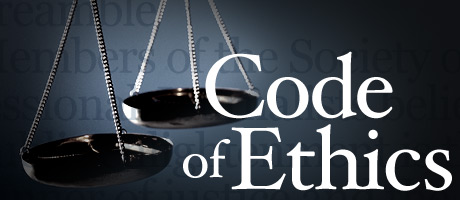mb573016@ohio.edu
The question of morals and ethics have been at the forefront of Journalism for some time now. Since the outbreak of the Watergate Scandal, the issue of trust among the media has been prevalent.
In the 1970s, President Nixon created an "Enemies List" of various news organizations that he said were spreading false claims about his administration and vowed that he would avenge his name. Similarly, President Trump claims that the media and news are responsible for the negativity his administration faces. History of Problems with The Press
While local news organizations generally thrive regardless of the media bashing that occurs, larger organizations face salary cuts and greater pounding by the public and politicians. Local vs. National News
Reasons News is Failing the Public
Critics of the news tend to list a few reasons as to why news organizations are failing in regards to achieving trust and continued respect from the public.
1. Money- The amount of completion and the high stake of money makes it difficult to get news out quickly and still remain ethical. Cable for example, must focus on receiving good ratings which makes it difficult to stay ethical when trying to please the public quickly (but not impossible).
2. Spinmeisters- Philosopher Harry G. Frankfurt says that it is important to always check one's facts before presenting them to others. A lot of media organizations have mastered the art of creating an appealing image rather than actually working on its foundation. Therefore, they sell false information because of their carelessness.
3. Tabloid Journalism- While this has always been part of public interest, over the past few decades, it has become more popular than actual factual and serious news. This is dangerous as it often causes people to unintentionally blend fake news with real news. Tabloid Journalism and its Impact
4. Political Bias- Many organizations now cater to only one demographic of viewers. While it it important to appeal to one's audience, it is also just as important to be aware of the population in general and stay away from biases.
Ethical Thinking
The Greeks, who are important to the development of ethics in the western world, said that ethics is a fundamental branch of philosophy. Rather than looking at ethics as a word to describe he good vs. the bad, it should be used as a way to describe outcomes because of heavy thinking.
Similarly, unethical should be used to describe outcomes based on ones inner feelings or emotions rather than as a synonym for bad decisions.
The western approach to ethics is not the only approach that can be taken. The eastern world, for example, sees the separation of knowledge and morality as unnecessary. Religious philosophies, for example, neglect the Greek approach to focus on things like learning from elders and dogma.
Western ethics, however, may be a better starting ground, because of its focus on inalienable rights for all people and freedom of the press.
Overall, the main focus of ethics is trying to decide what is justified and if it is the same way for each human or if it changes based on that person.
Socrates argued that when he was in prison, he chose not to escape because of the overall consequence it would have on the public. It would send the wrong message about respecting the law and would result in possible problems. That is an example of ethics.
Socrates thought about telos (Greek word for end goal) while he was in prison. Regardless of how unjust he thought the laws were, he chose to stay behind bars because he felt it was morally correct.
Religious forces, like the Catholic Church, have become prominent in the idea of morals and ethics. Deontology, a rule-based ethical theory, is comprised of things like the ten commandments that guide the public through what they should and shouldn't do.
They argue that behavior alone has moral importance, not just an outcome.
During the Renaissance and Reformation period, scholars stated the the human brain was able to think rationally. These ideas challenged the ways of the church.
The printing press showed people that they were capable of doing more things than they had previously thought. They could now read and learn more knowledge faster than ever before, proving their brains were more complicated than previously believed.
Utilitarianism, an ethics system based on one's outcomes, is linked to two pioneers of that field - John Stuart Mill and Jeremy Bentham. The philosophy calls for an equal playing field for all people and insists that everyone should be happy.
However, many critics argue that utilitarianism is not truly fair and does not really focus on the moral reasoning.
The contact theory argues that at one point in the world, people were given the right to do as they pleased without complete thought --for example, killing somebody for their personal belongings. People eventually decided that it was better to work together for a sense of better safety, compared to working apart and ending up in danger.
Although, some philosophers argue that humans are more concerned with their own personal desires. This is called ethical egoism. Friedrich Nietzsche, an ethical egoist, believed that "God is dead" and the world is ruled by a group of people.
Journalism and the culture
Cultural norms, our pre-conditioning of what is acceptable, is something that journalism organizations have take part in; creating ethics codes to express their idea of a norm.
The question of ethics remains prevalent in journalism, especially in the current climate. With ethics codes, can organizations (in particular larger media outlets) gain the public's trust back? It is possible, it just depends on the way the organization goes about ethically on a daily basis.
 |
Courtesy of Wordpress.com
|
No comments:
Post a Comment